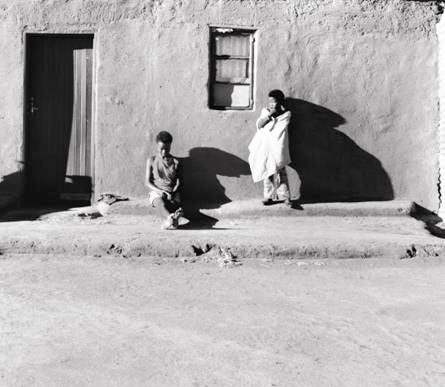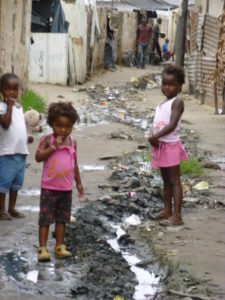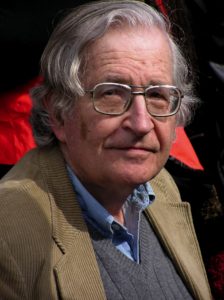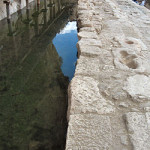The Purchase Of The Farm Braklaagte By The Bahurutshe ba ga Moiloa – Whose Land Is It Anyway? (1908-1935)
Braklaagte, registered as farm number 168 on the Transvaal farm register (the number was changed in the second half of the twentieth century to JP-90), was 3,152 morgen and 529 square rood in size, which is equal to 2,700.5441 ha in metric measurements.
The first title deed to the farm was registered in October 1874 in the name of Diederik Jacobus Coetzee. Ownership of the farm was transferred several times to other white farmers. W.M. Beverley was the last white owner before the farm was bought by the Bahurutshe ba ga Moiloa.
In 1906 a dispute arose in the Bahurutshe ba ga Moiloa tribe of Dinokana in Moiloa’s Reserve between Abraham Pogiso Moiloa and Israel Keobusitse Moiloa. When Abraham’s father, Ikalafeng, had died in 1893 he was a minor and Israel, Ikalafeng’s younger brother, would for a number of years act as regent. When Israel had to hand over the bokgosi (chieftainship) to Abraham in 1906 differences arose between them. A section of the tribe, led by Israel, moved eastward and settled at Leeuwfontein.
Already in 1876 Leeuwfontein had been bought for the tribe by chief Sebogodi Moiloa of Dinokana at the price of 200 head of large cattle, equivalent to about £1,000, but the transfer of the farm to the tribe had not yet been effected. ‘Quite an exodus’ of the Bahurutshe ba ga Moiloa took place from Dinokana to Leeuwfontein and by 1907 the majority of Israel’s adherents had settled there.
Read more
From the Web – The World Atlas of Language Structures
The World Atlas of Language Structures (WALS) is a large database of structural (phonological, grammatical, lexical) properties of languages gathered from descriptive materials (such as reference grammars) by a team of 55 authors (many of them the leading authorities on the subject).
The first version of WALS was published as a book with CD-ROM in 2005 by Oxford University Press. The first online version was published in April 2008. Both are superseeded by the current online version, published in April 2011.
WALS Online is a joint effort of the Max Planck Institute for Evolutionary Anthropology and the Max Planck Digital Library.
It is a separate publication, edited by Dryer, Matthew S. & Haspelmath, Martin (Munich: Max Planck Digital Library, 2011)
ISBN: 978-3-9813099-1-1. The main programmer is Robert Forkel.
Read more: http://wals.info
Martin Gambrill ~ Addressing The Urban Sanitation Crisis: Time For A Radical Shift
A successful city is economically and culturally vibrant, healthy, safe, clean and attractive to business and tourism, and provides quality of life to its citizens. This vision is appealing but remains hard to realize as developing cities have to cope with changing demographics and climate with limited financial and human resources. The sustainable development goals have given a new impetus for cities to be inclusive, safe, resilient and sustainable (SDG11), ensure citizens’ health and wellbeing (SDG3) and secure access to sustainable water and sanitation services (SDG6).
World Toilet Day on November 19th is the opportunity to remind ourselves of a few facts and propose a set of guiding principles for a renewed and revitalized urban sanitation agenda.
Many cities struggle to deal with the most basic municipal task of managing human excreta. Some are effectively “drowning” in human waste. Urban population growth continuously outpaces gains in improved sanitation access and, globally, Only 26% of urban excreta is deemed to be safely managed. The results? Environmental degradation, endemic disease leading to mortality and morbidity, especially among children, poor school attendance and performance, low productivity, constraints on the delivery of essential urban services such as housing, transport, safe water and drainage, and, ultimately, limits on economic growth and urban development. In short,
Read more: https://blogs.worldbank.org/water/addressing-urban-sanitation
How Public Housing Transformed New York City 1935-67 ~ Part One.
Historian Joel Schwartz takes us on a guided tour of New York City before the NYC Housing Authority razed large swaths of run-down neighborhoods to build public housing projects. These arresting photographs of a long-vanished New York City owe their astonishing detail to the 4×5 inch negatives captured by the NYCHA photographers. Photos are from the NYC Housing Authority collection housed at the La Guardia and Wagner Archives.
Part Two: https://youtu.be/kJ62bxhj3iA
Trump In The White House: An Interview With Noam Chomsky
On November 8, 2016, Donald Trump managed to pull the biggest upset in US politics by tapping successfully into the anger of white voters and appealing to the lowest inclinations of people in a manner that would have probably impressed Nazi propagandist Joseph Goebbels himself.
But what exactly does Trump’s victory mean, and what can one expect from this megalomaniac when he takes over the reins of power on January 20, 2017? What is Trump’s political ideology, if any, and is “Trumpism” a movement? Will US foreign policy be any different under a Trump administration?
Some years ago, public intellectual Noam Chomsky warned that the political climate in the US was ripe for the rise of an authoritarian figure. Now, he shares his thoughts on the aftermath of this election, the moribund state of the US political system and why Trump is a real threat to the world and the planet in general.
C.J. Polychroniou for Truthout: Noam, the unthinkable has happened: In contrast to all forecasts, Donald Trump scored a decisive victory over Hillary Clinton, and the man that Michael Moore described as a “wretched, ignorant, dangerous part-time clown and full-time sociopath” will be the next president of the United States. In your view, what were the deciding factors that led American voters to produce the biggest upset in the history of US politics?
Noam Chomsky: Before turning to this question, I think it is important to spend a few moments pondering just what happened on November 8, a date that might turn out to be one of the most important in human history, depending on how we react.
No exaggeration.
The most important news of November 8 was barely noted, a fact of some significance in itself.
On November 8, the World Meteorological Organization (WMO) delivered a report at the international conference on climate change in Morocco (COP22) which was called in order to carry forward the Paris agreement of COP21. The WMO reported that the past five years were the hottest on record. It reported rising sea levels, soon to increase as a result of the unexpectedly rapid melting of polar ice, most ominously the huge Antarctic glaciers. Already, Arctic sea ice over the past five years is 28 percent below the average of the previous 29 years, not only raising sea levels, but also reducing the cooling effect of polar ice reflection of solar rays, thereby accelerating the grim effects of global warming. The WMO reported further that temperatures are approaching dangerously close to the goal established by COP21, along with other dire reports and forecasts.
Another event took place on November 8, which also may turn out to be of unusual historical significance for reasons that, once again, were barely noted.
On November 8, the most powerful country in world history, which will set its stamp on what comes next, had an election. The outcome placed total control of the government — executive, Congress, the Supreme Court — in the hands of the Republican Party, which has become the most dangerous organization in world history.
Apart from the last phrase, all of this is uncontroversial. The last phrase may seem outlandish, even outrageous. But is it? The facts suggest otherwise. The Party is dedicated to racing as rapidly as possible to destruction of organized human life. There is no historical precedent for such a stand.
Is this an exaggeration? Consider what we have just been witnessing.
During the Republican primaries, every candidate denied that what is happening is happening — with the exception of the sensible moderates, like Jeb Bush, who said it’s all uncertain, but we don’t have to do anything because we’re producing more natural gas, thanks to fracking. Or John Kasich, who agreed that global warming is taking place, but added that “we are going to burn [coal] in Ohio and we are not going to apologize for it.”
The winning candidate, now the president-elect, calls for rapid increase in use of fossil fuels, including coal; dismantling of regulations; rejection of help to developing countries that are seeking to move to sustainable energy; and in general, racing to the cliff as fast as possible. Read more





